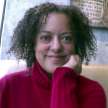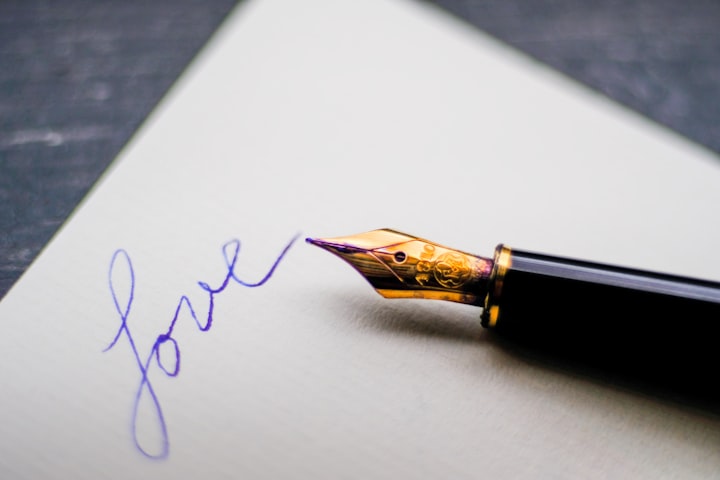My War Against Books
I prefer words to books if that makes any sense
I am not a great reader, despite growing up in a house full of books. I actually prefer words to books. I used to think that a lover of words had to be a lover of books, but, after agreeing to join a couple of book clubs, I discovered that the two are not necessarily compatible.
After greeting other book club members and being welcomed with a glass of wine, the conversation would inevitably turn to the book’s plot. Though I would try and join the discussion, I had no idea what my fellow book clubbers were talking about. It didn’t matter what book it was, my internal monologue always went like this:
That happened? Really?
I totally missed that.
Hmmm, I don’t remember that character.
Jesus, I should take notes, when I read.
All I’m doing is nodding my head in agreement, do you think they know I retained nothing?
I so wished we could just isolate sentences we liked, or marvel at the sheer poetry of three words strung together. That would be a fun club to belong to.
After a while, I gave up on book clubs, for pretty much the same reason I gave up on keeping a gratitude journal: While it seemed valuable in theory, it was just another thing Oprah was promoting that didn’t really take.
What the dictionary taught me
My love of words, however, persists to this day. By the way, the name for someone who loves words is called a logophile. I became a logophile early on when I discovered the exquisite Random House Dictionary of the English Language. It had a taupe cover, and the title was spelled out in smooth gold serif that I loved to trace my fingers over. The pages were onion skin, and each letter had a semicircular tab. When I closed the book, the tabs made perfect miniature steps for my small fingers to walk up and down.
At first, I consulted the dictionary out of necessity. I needed to understand what exactly my father meant when he called me cantankerous and mercurial. I fell in love with the process of flipping to the right section, locating the word and finding the meaning. Cantankerous meant grouchy! Mercurial meant moody! New words became presents I couldn't wait to unwrap.
Disappointing my parents
While I may have loved flipping through the dictionary, reading a book from start to finish held very little interest for me.
My mother would lament, “When you were five and we lived in England, you used to love reading so much!! You would go to the library in the morning and come home with a pile of books. You’d return them in the afternoon and come home with another pile! You were such a little bookworm. I don’t know what happened!”
You don't know what happened? Ummm, children's books are easy to read: they’re short and loaded with illustrations. Who doesn’t love reading children’s books? It’s like asking, who doesn’t like reading menus?
And besides the books that my parents tried to convince me to read were just pages upon pages of text that were supposedly building up to a story I could care less about. I had a huge collection of books I never read. My shelves were lined with Black Beauty, Nancy Drew, The Bobbsey Twins, Swallows and Amazons, Jeeves and Wooster, The (fucking) Hobbit and on and on.
I usually got these books for Christmas or my birthday. I knew I would never read them, even still, I would open each one up to the second or third page and write my name, just as I had seen my father do with his books. Unlike my father, however, I would return mine to the shelf completely unread with a nice crisp spine. I'd glance at the titles before picking up the dictionary. I would flip to a letter like Y, and scan the section until I found a word that captured my attention. Younker = young noble or gentleman. Hmmm. Kinda interesting.
Oh television!
My English professor father was especially unhappy about how little I cared for books. Books were his livelihood. I suppose to him it felt like I was rejecting a big part of who he was. He blamed my profound lack of interest not on the dictionary, but television.
And so, one evening in 1978, after I had excused myself from the dinner table and hastily put my plate in the sink so I could rush downstairs to watch Green Acres, my father informed me that that wouldn’t be happening.
While I was at the sink, I heard this decree: “You are only to watch television on Friday nights and Saturdays. During the week there will be no more television unless there is an educational program we can all watch together.”
I was in shock. My television life flashed before my eyes. No more Jack, Chrissy and Janet, no more Schneider and Julie and Barbara, no more Barbarino and Horshack. After dinner I was to retire to my bedroom to catch up with the likes of Merrylegs, Nancy, Bess and George, Bert and Nan and (fucking) Bilbo Baggins instead. Ugh.
My father casually ending my life as I knew it with these newly imposed sanctions on my television watching seemed completely hypocritical and unfair to me: he LOVED television. I started to think this ban had more to do with him being able to watch The Price is Right; Love, American Style; Tattle Tales; Room 222; Mary Hartman, Mary Hartman, without me haranguing him to change the channel. But what choice did I have? It was his television.
The power of visualization
Just because I couldn't watch television didn't mean I couldn't read about it. Every Monday, my father would give me money to buy him the latest TV Guide. I did so dutifully if only to buy myself a chocolate bar from the change. I also started to read the television listings with their one-sentence plot synopses and try to imagine what happened during my favourite but now banned television shows. I also relied on these plot synopses to keep up with my classmates, during recess the talk was always about television and with a little help from TV Guide I could pretend I saw the same shows as everyone else.
Of course, I was still addicted to television. Sometimes when no one was home during the week I would race down to the basement and stand in front of the television watching it nervously. The moment I thought I heard the car pull up in the driveway I would dart upstairs. Once in a while, I got caught and would get an earful of how I should be doing my homework or reading.
The book that changed everything
On Sundays, I would visit my father in his office (which was a stone’s throw from the TV room) and look around at all his books. I liked being surrounded by titles and I would often pull out a book from the shelf and start perusing the pages.
He looked up from marking papers: “I wish you would read more.” He sighed. “When I was your age, I loved David Copperfield, Great Expectations… But you don’t like to read.” Then he went back to his work. I acknowledged his disappointment in me.
I ran my fingers over the spines taking in titles like In the Castle of My Skin, A House for Mr. Biswas, and Catch-22. As I went further along his shelf, I pulled out a slim book with a golden spine. The Catcher in the Rye I read aloud. “What does that mean?”
“Read it.” My father said.
I opened it and read the first paragraph:
If you really want to hear about it, the first thing you’ll probably want to know is where I was born, and what my lousy childhood was like, and how my parents were occupied and all before they had me, and all that David Copperfield kind of crap, but I don’t feel like going into it, if you want to know the truth. In the first place, that stuff bores me, and in the second place, my parents would have two hemorrhages apiece if I told anything pretty personal about them.
I fell instantly in love. This was a book about someone who seemed to hate reading as much as I did.
I tore through it in three days. Holden Caulfield was just so relatable to me. I couldn’t wait to discuss the book with my father.
He may have thought my war against books was over. I don't know if I'd go that far. I loved Catcher in the Rye so much that I read and re-read it many times, but I wasn't about to run into the arms of Elizabeth Bennett in Pride and Prejudice or start quoting from David Copperfield. I did fall in love with Pip in Great Expectations though. My father and I watched the David Lean movie together. It qualified as one of those edifying shows I could watch during the week.
About the Creator
Daphne Faye
I love to write personal essays. Some are humorous; others are more serious, but they're always heartfelt. I'm also an avid photographer, check me out on Instagram @molelovesbokeh
Enjoyed the story? Support the Creator.
Subscribe for free to receive all their stories in your feed.







Comments (3)
Wow, I totally relate to many aspects of this. There’s a unique identity in being a word-lover that doesn’t necessarily correlate with loving fiction. It makes sense that you write personal essays; that’s one of my favorite mediums too. I bet you also enjoy word puns? Haha! I’m happy to have found your page ❤️
Awesome! Loved the telling of your personal story! Subscribed and left a heart!💖💕
I certainly know what you mean, If a book is very hefty I tend to get an ebook as my Kindle is sometimes easier to navigate. Words are what drive us to create